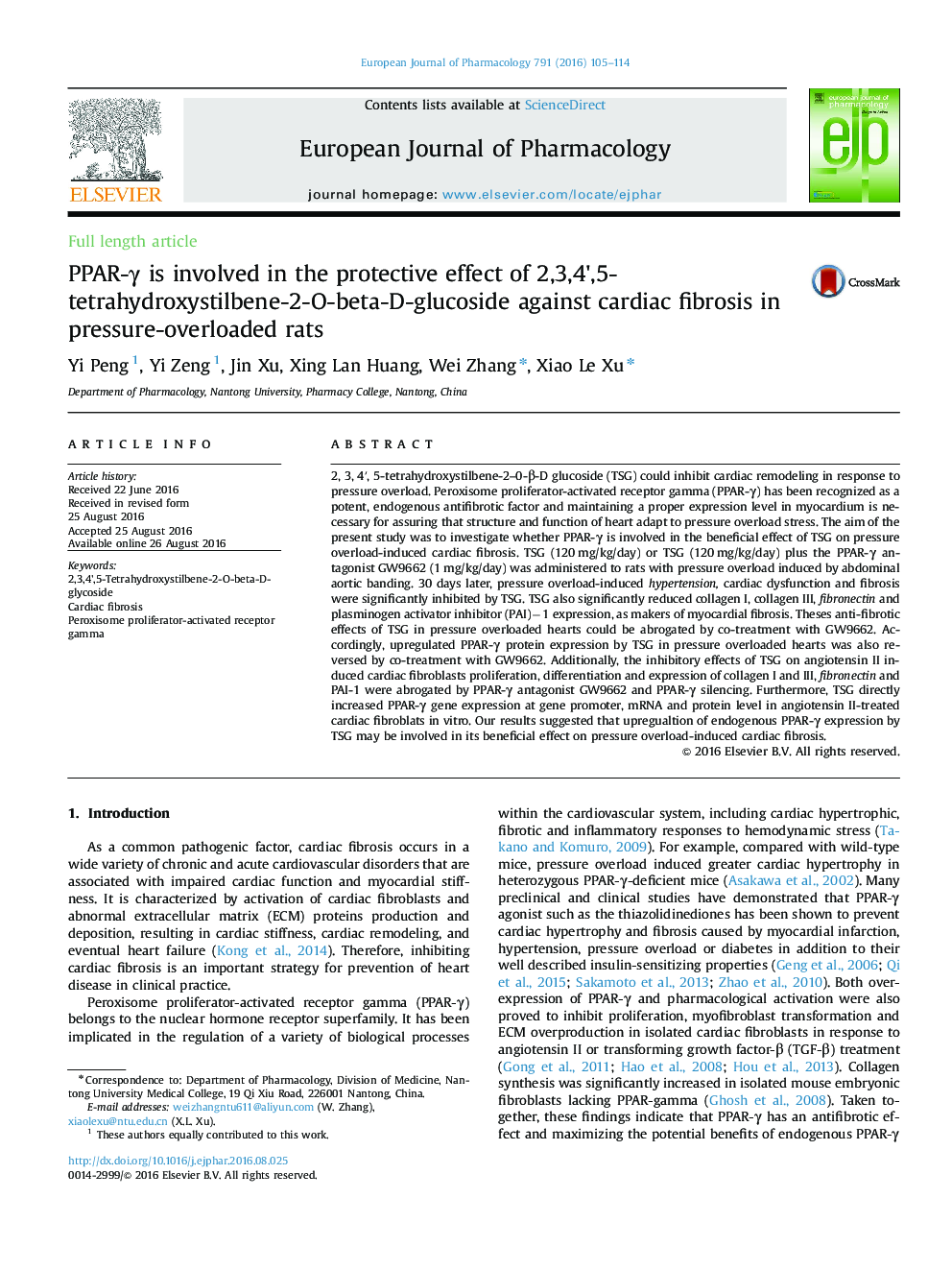| Article ID | Journal | Published Year | Pages | File Type |
|---|---|---|---|---|
| 2530794 | European Journal of Pharmacology | 2016 | 10 Pages |
Abstract
2, 3, 4â², 5-tetrahydroxystilbene-2-0-β-D glucoside (TSG) could inhibit cardiac remodeling in response to pressure overload. Peroxisome proliferator-activated receptor gamma (PPAR-γ) has been recognized as a potent, endogenous antifibrotic factor and maintaining a proper expression level in myocardium is necessary for assuring that structure and function of heart adapt to pressure overload stress. The aim of the present study was to investigate whether PPAR-γ is involved in the beneficial effect of TSG on pressure overload-induced cardiac fibrosis. TSG (120 mg/kg/day) or TSG (120 mg/kg/day) plus the PPAR-γ antagonist GW9662 (1 mg/kg/day) was administered to rats with pressure overload induced by abdominal aortic banding. 30 days later, pressure overload-induced hypertension, cardiac dysfunction and fibrosis were significantly inhibited by TSG. TSG also significantly reduced collagen I, collagen III, fibronectin and plasminogen activator inhibitor (PAI)â1 expression, as makers of myocardial fibrosis. Theses anti-fibrotic effects of TSG in pressure overloaded hearts could be abrogated by co-treatment with GW9662. Accordingly, upregulated PPAR-γ protein expression by TSG in pressure overloaded hearts was also reversed by co-treatment with GW9662. Additionally, the inhibitory effects of TSG on angiotensin II induced cardiac fibroblasts proliferation, differentiation and expression of collagen I and III, fibronectin and PAI-1 were abrogated by PPAR-γ antagonist GW9662 and PPAR-γ silencing. Furthermore, TSG directly increased PPAR-γ gene expression at gene promoter, mRNA and protein level in angiotensin II-treated cardiac fibroblats in vitro. Our results suggested that upregualtion of endogenous PPAR-γ expression by TSG may be involved in its beneficial effect on pressure overload-induced cardiac fibrosis.
Related Topics
Life Sciences
Neuroscience
Cellular and Molecular Neuroscience
Authors
Yi Peng, Yi Zeng, Jin Xu, Xing Lan Huang, Wei Zhang, Xiao Le Xu,
